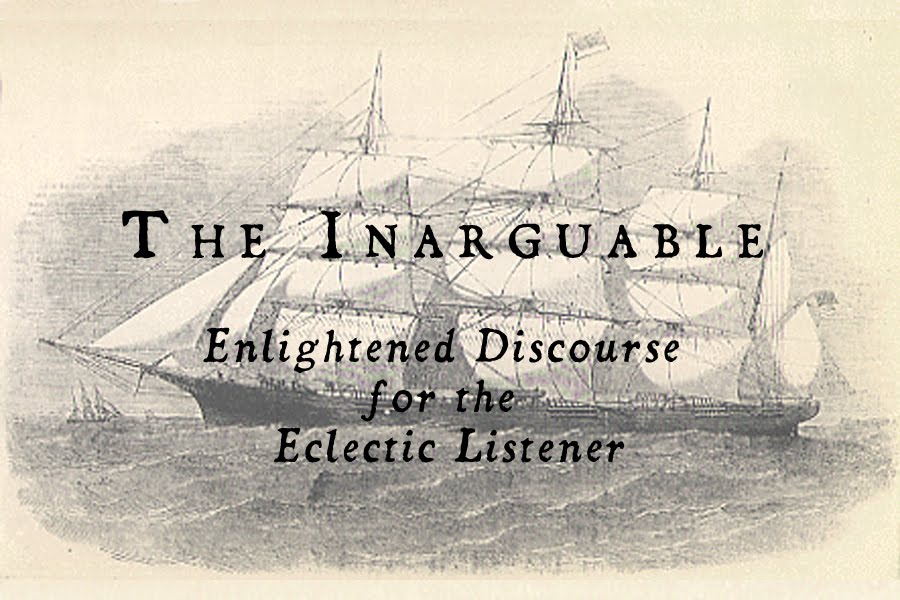Despite the name of the album (it's
Greek for “love”), Agape is one of the absolutely worst
gifts you can give your loved ones for the holidays. That was meant
in an honest, positive sense – while there are bands of greater
technical skill and with superior songwriting, few bands can capture
the raw feeling of melancholy like Herbst and Neige have done on
Lantlôs' third album. Purveyors of cheer and joy will find much
to frown about, while Eeyores around the world will raise their
goblets, declare the album a masterpiece, black out and wake up with
spirit crushing riffs pounding in their head as they bend over green
tinged toilets and puke out their Big Macs.
Agape feels like an
existentialist journey through one man's lows and lower lows. (Highs
have no place here.) “Intrauterin” opens the album with a
yawning, two minute-long void before exploding into Herbst's crushing
riffs and Neige's wails of woe and black tides, alluding to this
mystery man's struggle with his internal demons. Of the identity of
these demons, we know little, but nearly everyone has them, whether
with alcoholism, religion, family, love, and onward. Unlike those
that break free, Lantlôs instead portrays one that has nearly thrown
in the towel, ready to give up on all that he holds dear.
“Bliss” feels slightly more
uplifting, featuring the same minimal yet slowly engulfing sound
highlighted throughout the album. Feedback is used to wrap the
listener in waves of echoing decay and through mires of misery.
Rather than whetstone-sharpened needles of agony and rage, Agape
presents us with a feeling of helplessness trapped in the wheel of
life, gently yet firmly pushing the listeners toward a hearse under
gray skies.
“Bloody Lips and Paper Skin” is a
blip on the album's otherwise depressing atmosphere – the man has
found a ray of light, of whatever worth. If “Intrauterin” and
“Bliss” is a fast-forward through pain, “Bloody Lips and Paper
Skin” is where everything seems much clearer, however momentarily.
It is the climax, where the slightly more positive vibe brought on by
the energetic guitars brings a sense of hope for the mysterious character. Yet this, too is an illusion, to be burned and discarded
like cigarettes.
“You Feel Like Memories” is the
next scene. A gentle instrumental for troubled souls, it is autumn
wrought within four and a half minutes of calming post-rock-esque
guitar and the quiet taps of hi-hat cymbals. A house of cards about
to fall, the withering of tree leaves, two lovers in a slowly
unlocking embrace – these are all appropriate scenes to describe
what the song captures the sense of.
The descent into despair reaches its
destination on “Eribo – I Collect The Stars.” Here we have
Neige in his signature celestial dream-invoking voice so familiar to
fans of Alcest. The guitars swell with power as the cruel feeling of
finality is reached. The prominent, sparse ambience and feedback of
the first songs comes full circle, and our anonymous protagonist has
gone from heavily depressed to utterly doomed. The only exit at this
point is to beg and grovel for compassion from the increasingly
distant world – for agape. Nothing else is left but a shell of a
man, for all of the color of his life has become gray.
Agape is composed of just five
tracks and the album only lasts just over half an hour, but the slow,
barren progression of the composition and long song lengths can cause
it to seem plodding and sluggish. It is not an album for sunny days
and frat parties (not even ironically), but when played on isolated nights with only clouds
and moonlight to turn to for solace, Agape proves its worth as
an album for contemplation and the dark alike.
-Shane D


No comments:
Post a Comment